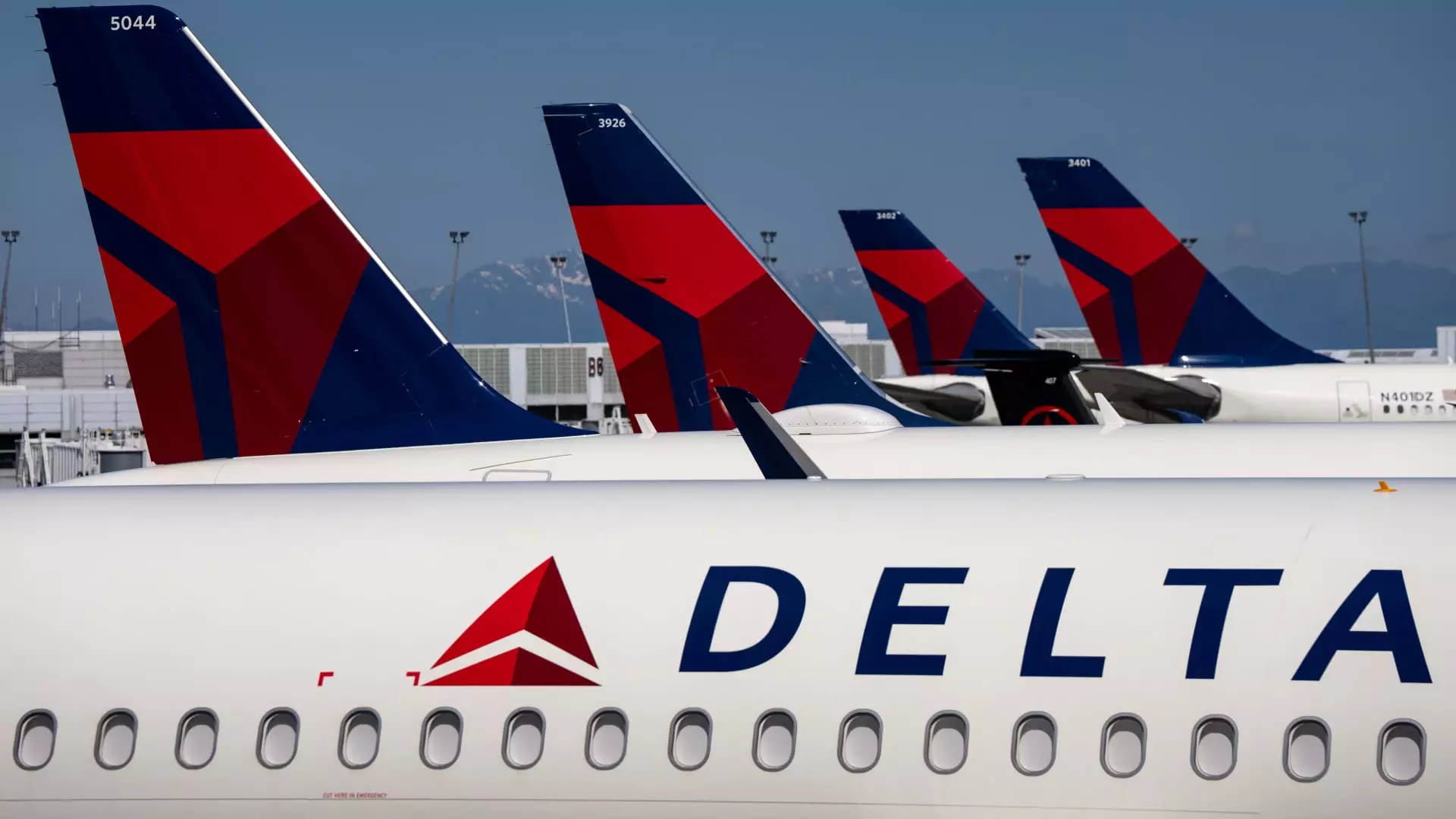Delta Air Lines has always been regarded as a bellwether for the airline industry, with its performance often indicative of broader market truths. But recent developments are a cause for concern. As the nation’s political climate becomes increasingly volatile, particularly due to erratic trade policies, Delta’s once-rosy projections have turned grim. CEO Ed Bastian articulated his disappointment when he called these policies “the wrong approach.” His remarks underscore a growing unease among business leaders regarding not just their immediate operations but the overall economic landscape. In an era where businesses rely on predictability to plan for growth, the shifting sands of trade negotiations pose a significant risk.
Moreover, Delta’s forecast of its second-quarter revenue, expected to be stagnant or possibly declining up to 2%, reveals an unsettling trend. Analysts had expected modest growth, but reality paints a different picture. This sluggish outlook indicates a disruption in consumer spending patterns, heavily influenced by government policies that are eroding confidence. As Bastian himself noted, corporate and leisure travel demand has weakened sharply, prompting Delta to reconsider its growth strategy.
Consumer Confidence: The Cracks Are Showing
The decline in bookings comes at a time when CEOs like Bastian are observing an alarming dip in consumer confidence. There’s an undeniable ripple effect from Washington, D.C., that is affecting how individuals and corporations prioritize spending in areas like travel. With corporations rethinking their travel policies amid economic uncertainty, Delta’s reliance on markets that have been considerably reshaped by governmental decisions is clearly a matter of great concern.
It’s not just about the numbers on a balance sheet; consumer sentiment is intricately linked to corporate profitability. Bastian’s candid acknowledgment that “main cabin bookings are weaker than previously expected” speaks volumes. If the earliest indicators of economic activity show a downturn, where does that leave Delta and, by extension, the airline industry? The tension between domestic and international policies might just be the catalyst driving consumers to hit the brakes on their travel plans.
Flat Booking Capacity: A Precursor to Wider Industry Stagnation?
Moreover, Delta’s announcement regarding its decision to halt the expansion of its flying capacity by 3%-4% in the latter half of the year signals deeper issues within the airline industry. The decision to maintain a flat capacity year-over-year could mark the beginning of broader restrictions across the sector. Other airlines may follow suit, creating a domino effect that could exacerbate the already slowing growth rate of travel.
This is especially alarming when considering that Delta had projected a different outcome only a few months prior. Analysts from TD Cowen highlighted the potential for a series of capacity reduction announcements from airline companies in the near future. If Delta, one of the strongest players in the market, is experiencing this level of concern, the implications for other airlines could be dire.
The Human Element: Profit Over Experience?
It’s imperative to recognize that these decisions—grounded in financial prudence—do not just impact corporate earnings; they affect lives. Travel is an essential part of not just business but personal connection. A greedy focus on margins and cash flow might seem necessary from a corporate standpoint, but it ultimately sacrifices the experience that customers expect and deserve. The paradox here is stark: While Delta attempts to protect itself from financial fallout, it risks alienating customers who may feel discouraged from traveling if accessibility continues to shrink.
While Delta remains profitable for now, how long can that last in an environment where the very fundamentals of consumer behavior are shifting? There is a delicate balance to strike between maintaining profitability and ensuring that the joy of travel—a cornerstone of human experience—is not lost in the pursuit of financial stability.
Pace of Progress: A Call to Action for Leadership
It remains to be seen how the leadership at Delta—and within the broader airline industry—will navigate these troubled waters. The implications of the continued disconnect between consumer expectations and corporate policy are severe. Leadership must embrace a forward-thinking approach that reconciles bottom lines with the experiences of actual passengers. Inaction could lead to irreversible damage, where the travel sector faces a prolonged slump that could ripple across the global economy.
Rather than simply weathering this storm, airline executives need to engage actively in dialogue with policymakers to ensure that the changes being implemented consider both economic realities and the importance of human connection. As the future of airline travel hangs in the balance, consumer confidence will depend on how effectively these leaders navigate these complex challenges.

Leave a Reply